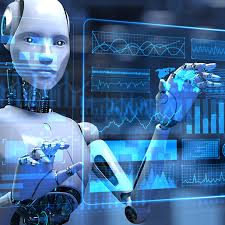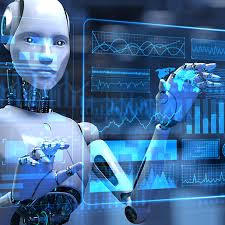Future of Robotics & Automation: A Revolution in the Making
The future of robotics & automation is set to transform industries, economies, and daily lives. As technological advancements accelerate, the impact of robotics and automation on various sectors continues to grow. From manufacturing and healthcare to logistics and smart homes, robots and AI-driven systems are becoming indispensable. Businesses and individuals must prepare for a world where automation is the driving force of progress.
The Evolution of Robotics and Automation
Robotics and automation have come a long way since their inception. Initially used in industrial settings for repetitive tasks, these technologies have now permeated nearly every aspect of human life. The rise of artificial intelligence, machine learning, and the Internet of Things (IoT) has fueled the growth of more sophisticated automated systems.

The future of robotics & automation will be shaped by innovations such as collaborative robots (cobots), autonomous vehicles, and AI-powered decision-making tools. As industries integrate these advancements, efficiency, accuracy, and productivity will reach unprecedented levels.
The Role of Artificial Intelligence in Automation
Artificial intelligence (AI) is the backbone of modern automation. AI-driven robots can analyze data, learn from their environment, and make informed decisions without human intervention. Machine learning algorithms enable robots to improve their performance over time, making them highly adaptable.
In industries like healthcare, AI-powered robotic assistants are performing surgeries with precision. In finance, automation streamlines transactions and risk assessments. The future of robotics & automation will see AI playing an even greater role, making systems smarter and more autonomous.
Robotics in Manufacturing and Industry
One of the earliest adopters of automation, the manufacturing sector continues to benefit from robotic advancements. Automated assembly lines, robotic arms, and AI-driven quality control systems have revolutionized production.
Smart factories equipped with robotics and automation reduce costs, minimize human errors, and enhance productivity. With the integration of Industry 4.0 technologies, the future of robotics & automation will lead to hyper-efficient, fully autonomous manufacturing ecosystems.
The Rise of Autonomous Vehicles
Self-driving cars and drones are redefining transportation and logistics. Companies like Tesla, Waymo, and Amazon are investing heavily in autonomous vehicle technology. AI-driven navigation systems, advanced sensors, and real-time data analysis allow vehicles to operate safely without human intervention.
The future of robotics & automation in transportation will result in fewer accidents, reduced traffic congestion, and enhanced delivery services. Autonomous trucks and drones will optimize supply chains, making deliveries faster and more cost-effective.
Automation in Healthcare
The healthcare industry is undergoing a transformation with the integration of robotics and automation. From robotic surgeries to AI-powered diagnostic tools, automation enhances precision and efficiency in medical treatments.
Telemedicine and robotic caregivers are making healthcare more accessible, especially in remote areas. The future of robotics & automation will see an increase in AI-driven drug discovery, automated patient monitoring, and personalized treatment plans.
Smart Homes and Everyday Automation
Smart home technology is making everyday life more convenient. AI-powered assistants like Alexa and Google Home automate household tasks, from adjusting lighting to managing security systems.+
Robotic vacuum cleaners, smart refrigerators, and automated gardening systems are just the beginning. The robotics & automation will bring more intelligent home solutions, creating seamless, efficient, and sustainable living environments.
Robotics in Space Exploration
Space agencies like NASA and SpaceX rely on robotics for deep-space exploration. Robotic rovers, AI-driven space probes, and automated spacecraft have expanded our understanding of the universe.
In the future of robotics & automation, we can expect more autonomous space missions, robotic colonization of other planets, and AI-assisted interstellar travel.
Ethical Considerations and Challenges
While the future of robotics & automation holds immense promise, ethical concerns must be addressed. Job displacement, privacy risks, and AI biases are significant challenges.
Governments and businesses must work together to create policies that ensure ethical AI development, workforce reskilling, and data security. Responsible automation will maximize benefits while minimizing risks.
Conclusion
The future of robotics & automation is not a distant dream—it is unfolding before our eyes. With advancements in AI, IoT, and machine learning, robots and automated systems will continue to redefine industries and daily life.
To stay ahead in this rapidly evolving landscape, businesses and individuals must embrace automation, invest in skill development, and prepare for a future where robotics play a central role. As technology continues to evolve, one thing is certain—the future belongs to those who adapt and innovate with robotics and automation.




